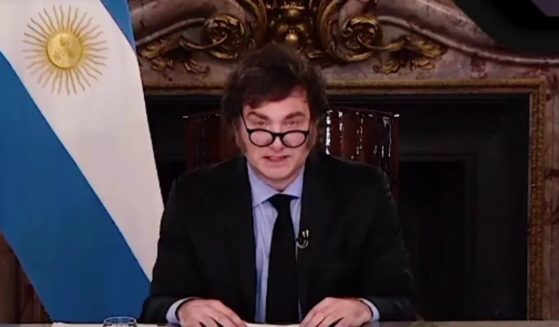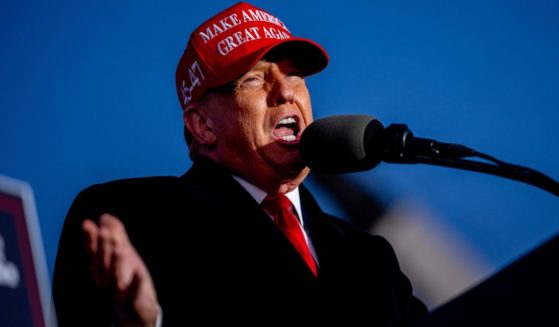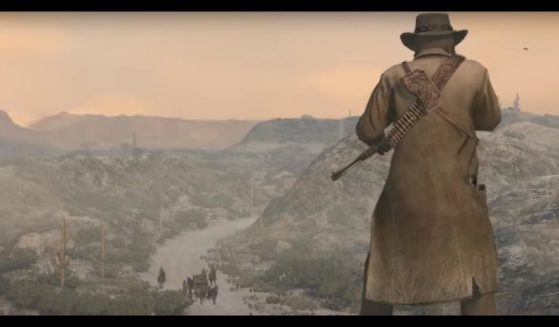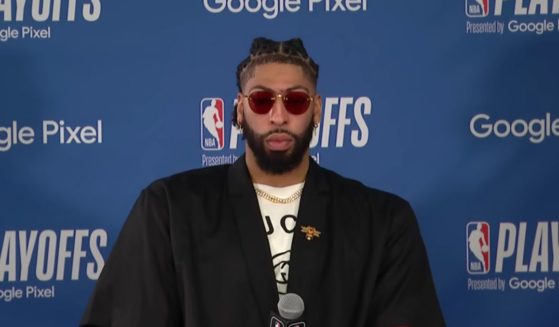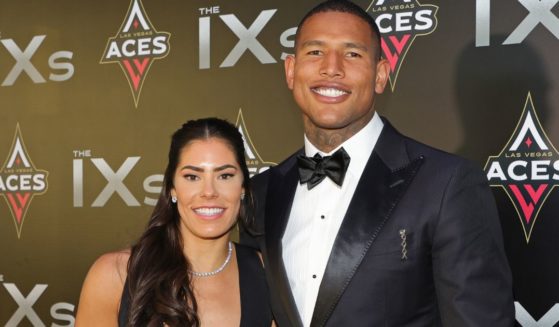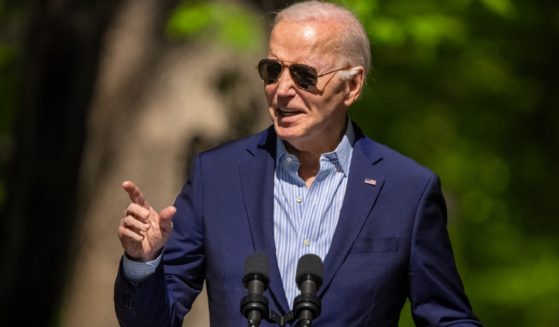Reporter Asks About Whistleblower, So Rand Paul Asks if She's Heard of the Constitution
Kentucky GOP Sen. Rand Paul’s claim that he’ll “probably” reveal the name of the whistleblower who got the whole impeachment inquiry rolling hasn’t gone over too well with a whole host of people.
Perhaps “The View” co-host Meghan McCain best summed up the general media take when she told the audience during Tuesday’s edition of her show: “I hate him.”
Well, that’s rather blunt. According to Paul, however, this is about nobody being below the law — and the fact that everyone, even the president, has Sixth Amendment rights.
So, a quick brief if you’re not familiar with exactly what’s been happening with the whistleblower: As of right now, congressional investigators are negotiating with the whistleblower as to whether or not they’ll testify.
The whistleblower has offered written testimony, though it doesn’t look like that’s going to fly with Republicans.
Paul has been one of the loudest voices demanding that the whistleblower testify, and has publicly said he might even reveal their identity.
On Monday, appearing at a rally with President Donald Trump in Kentucky, he called on the media to release their name, citing several reports which have stated the individual in question worked with former Vice President Joe Biden at the White House.
“We also now know the name of the whistleblower. The whistleblower needs to come forward as a material witness because he worked for Joe Biden at the same time Hunter Biden was getting money from corrupt oligarchs,” Paul said, according to The Hill.
“I say tonight to the media, do your job and print his name.”
“I’m more than willing to, and I probably will at some point,” Paul added to reporters on Tuesday. “There is no law preventing anybody from saying the name.”
“There’s nothing that prevents me from saying it now,” Paul said during an appearance on Fox News that night.
When asked whether he would say the name on the Senate floor as a part of a speech, Paul responded, “I can, and I may, but I can do it right now if I want. Nothing stops me.”
Paul has said he thinks he knows who the whistleblower is. This isn’t an uncommon sentiment in Washington — everyone seems to have a pretty good idea as to the background of who wrote the original report, with some like Paul saying they know their name — but so far the Kentucky senator says he doesn’t want this to be about who blew the whistle.
“I want it to be more about the process and less about the person,” Paul said.
“Nothing stops me. There’s no law that stops me from doing it other than that I don’t want to make it about the one individual.”
But isn’t the whistleblower protected? After all, there’s a federal law that protects them from retribution, right?
Well, as Paul pointed out when a reporter asked him about it, the whistleblower is not protected at the expense of the president’s constitutional rights.
The exchange happened earlier Tuesday during one of those Sorkin-esque walk-and-talks that we see our legislators engaged in so often as of late.
“Your colleagues, Republicans, say that it’s irresponsible and dangerous for you to call out the whistleblower,” the reporter told Paul.
Paul then asked the reporter is she’d heard of the Constitution.
“You’ve heard of the Constitution, right? The Constitution has the Sixth Amendment,” Paul shot back.
Question: “Your colleagues, Republicans, say that it’s irresponsible and dangerous for your call to out the whistleblower.”
Sen. Rand Paul: “You’ve heard of the Constitution, right? The Constitution has the Sixth Amendment.” pic.twitter.com/IVWLmuTr0F
— The Hill (@thehill) November 5, 2019
“And the Sixth Amendment says very clearly that, if you’re accused of a crime, you have the right to confront your accuser. So I think the Constitution’s very clear on this and we shouldn’t completely just throw away the Constitution, particularly because certain networks just don’t like the president.”
The Sixth Amendment, for those of you without your pocket Constitutions handy, states: “In all criminal prosecutions, the accused shall enjoy the right to a speedy and public trial, by an impartial jury of the state and district wherein the crime shall have been committed, which district shall have been previously ascertained by law, and to be informed of the nature and cause of the accusation; to be confronted with the witnesses against him; to have compulsory process for obtaining witnesses in his favor, and to have the assistance of counsel for his defense.”
Republican Sen. Lindsey Graham of South Carolina also made note of what the whistleblower law is actually supposed to do.
Sen. Lindsey Graham: “The whistleblower statute was never meant to give you anonymity.” pic.twitter.com/rt67pie3Tl
— The Hill (@thehill) November 5, 2019
“The whistleblower statute was never meant to give you anonymity. It was meant to allow you to come forward without being fired,” Graham told reporters Tuesday.
There are still plenty of questions the whistleblower should answer in a closed-door session.
They’re still protected under whistleblower law, but that doesn’t recuse them from answering questions from congressional investigators.
And, while revealing their name may not be the best look for Paul — Meghan McCain isn’t going to be Rand’s BFF, obviously — simply protecting someone’s name from the public isn’t necessarily what whistleblower law is designed to do.
Of course, if the whistleblower would go on the record, I don’t think this would even be an issue.
Yes, the amorphous nature of an impeachment proceeding makes it unclear what constitutional rights apply where and to whom. That said, for the sake of precedent, one would hope Congress would err on the side of caution.
Truth and Accuracy
We are committed to truth and accuracy in all of our journalism. Read our editorial standards.



